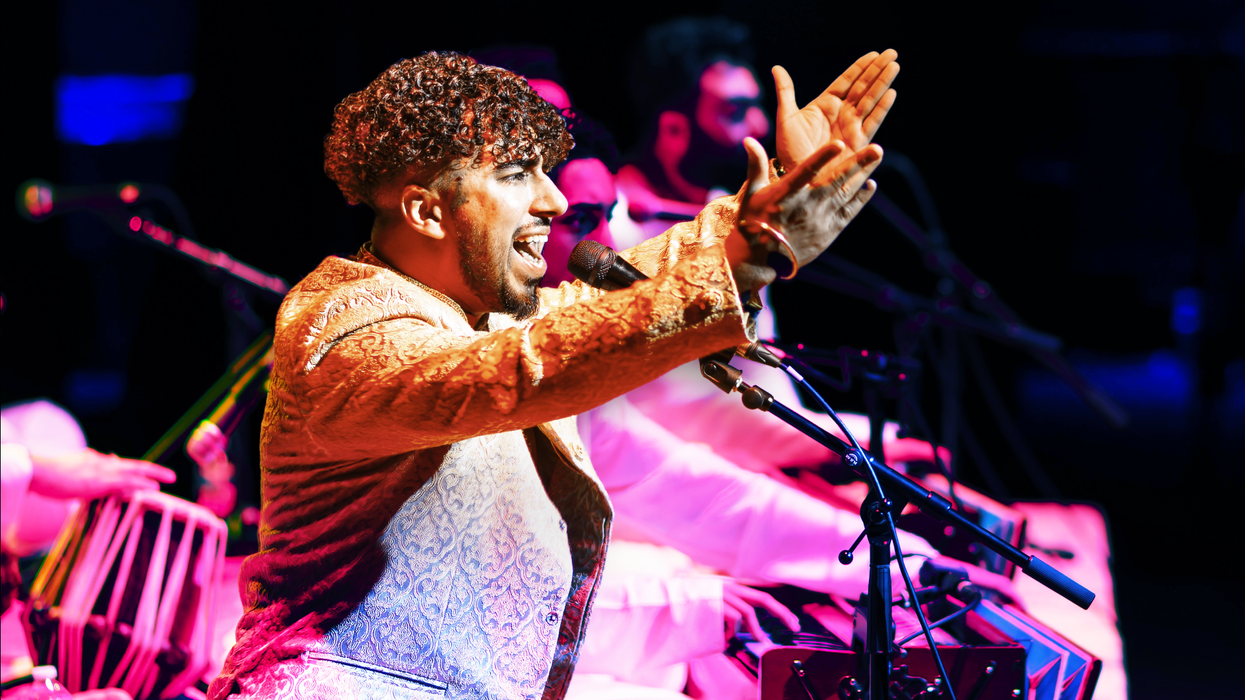DESPITE being centuries old, qawwali music remains massively popular with live audiences around the world.
One of its top British exponents, Chand Ali Khan Qawwal and Party, is set to embark on another UK tour in February.
The Midlands-based group has already sold out some shows, and their Dillagi tour promises a blend of authentic original compositions and contemporary interpretations, including Bollywood-inspired songs.
Lead singer Chand Ali Khan is looking forward to reconnecting with audiences on the action-packed tour and discussed his love of live performances.
How much does performing live mean to you?
Some fans recently described to me the unspoken connection they feel during our live shows. How it gives them this warmth and makes them feel peaceful. To be honest, I echo these sentiments. Live performances are the heartbeat of this rhythmic tapestry of qawwali. It’s not just about singing; it’s about weaving an emotional journey with the audience. The shared energy and unspoken connection create a spiritual conversation through melodies.
What can audiences expect from your UK tour?
This year, we are bringing a revitalised flavour of sufiana kalaam to both famous and rare qawwalis, along with Bollywood tracks rooted in qawwali music theory, resonating with our contemporary touch – all under the banner of Dillagi. Brace yourselves for an auditory odyssey and some delightful surprises. You’ll have to join us if you want to know more.
How do you feel about your growth as a live performer?
The artistic process is an evolution, really. With every concert, I try to delve deeper into the nuances of expression. The stage is our canvas and our interpretations of qawwali are there to paint emotions. Over time, with the grace of Allah, my palette has grown richer.
Why do you think live qawwali music is enjoying such a resurgence?
There has definitely been a change in recent years. While anyone can access music editing software, not everyone can be a true artist, particularly a live singer. People are starting to realise the value of creating live music. They are getting fed up of lip sync performers and karaoke effects. In our digital age, we now crave authenticity and having a good time; in this realm, qawwali stands as a beacon.
Tell us more about that.
People recognise the rawness and emotion of qawwali when performed live. It offers a poignant escape and fosters empathy in the midst of the mundane. People yearn for connection and qawwali offers an intimate and communal experience unlike any other genre.
Which qawwalis do you enjoy performing the most?
It has to be my all-time favourite, Yeh Jo Halka Halka Suroor Hai. Ustad Nusrat Fateh Ali Khan saab crafted so many melodies and variations in this track that are entrancing and the poetry resonates deep within the soul. Personally, I love the build-up of the raag, which just captivates you.
Do you ever get nervous before going on stage?
I think it used to affect me more when I was younger. All artists get a little jittery on stage. But now, nervousness has become part of the prelude – it gives me that mix of excitement, reverence and opportunity to deliver qawwali perfectly on stage. Nowadays, it’s a positive driving force, and a reminder of the responsibility to create an atmosphere that transcends one’s connection with god and touches the sublime.
In your opinion, what is the secret of a great performance?
I approach each performance as if it were my last concert. That way, I give it my all and hope the audience gets to experience the immersive magic of qawwali. I don’t like to complicate or spoil the recipe. When you surrender to the music, it enters your heart and reflects in your expression.
What are your future plans?
We are currently working on original compositions, which will hopefully be released soon. Exciting discussions are underway for venturing into the western arena and also collaborating with prominent names in the original qawwali sphere. Ultimately, the goal is to preserve the richness of our musical heritage.
Today, what inspires you as a singer?
The biggest inspiration towards this line of work is the music and impact of the late great shahenshah-e-qawwali, Ustad Nusrat Fateh Ali Khan saab. Despite the turmoil and challenges in the world, my aim is that the message of my work helps unite our community with commonality and instills love, peace, and kindness that mankind deeply holds. Although it's difficult with so much conflict and disagreements in the world, there are many good stories of journeys, struggles and triumphs. I hope our music transforms into a catalyst for spreading this message.
Why should we come to the concerts?
The London concerts have already sold out a month before the tour starts. But there’s still time for the UK to join us in Glasgow, Birmingham and Manchester. I cannot wait to see you all there.
Tickets are available to book at www. qawwaliworld.com. Instagram: @chandalikhanqawwal




